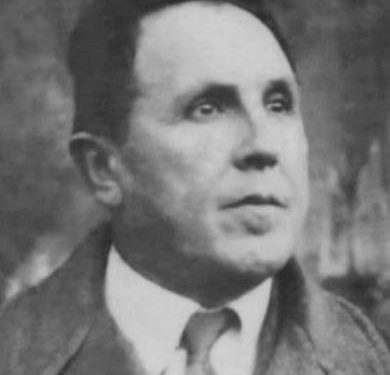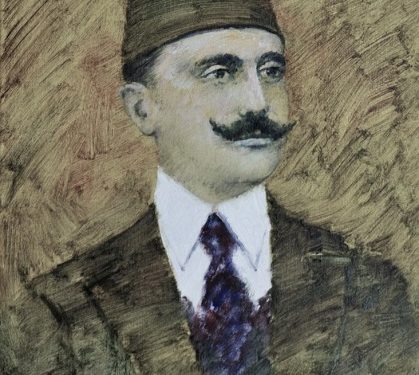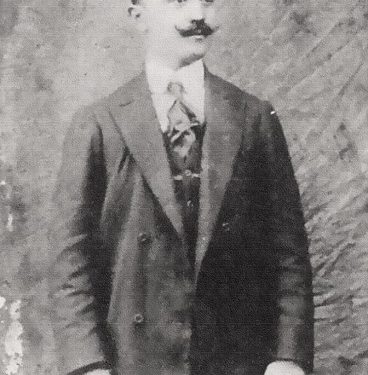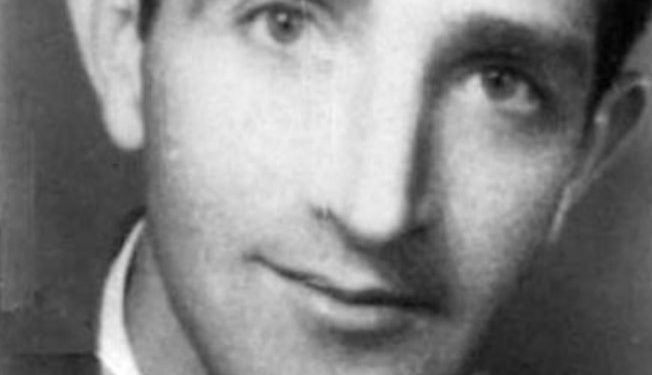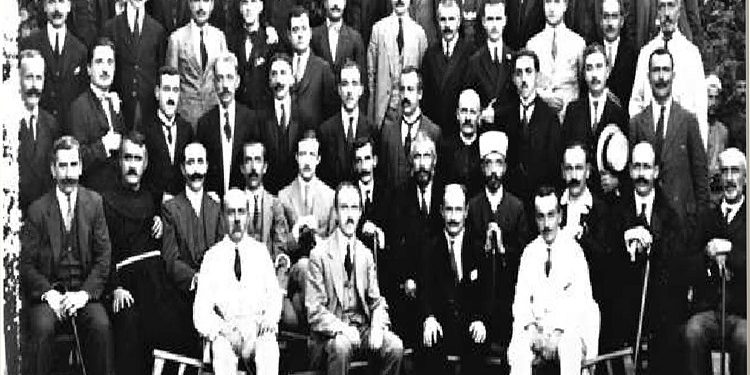By Fatjon Kaloçi
Second part
Memorie.al/ Various data, sometimes even contradictory, come about the genealogy of the Bejler family of Koprêncka, who bear the surname Mançe. From oral tradition, and then from historical documents, it is specified that this family from the middle of the 19th century, until the 30s of the 20th century, owned thousands of hectares of farmland, meadows, pastures, mostly summer and forests. These lands have been in; Gostënckë, Leshnje, Vlushë, Kapinovë, Krastë (Bërsakë), Potom, Çorovodë, the summer pastures of Ostrovica, Shtylla, Shera, Qafa e Marta, Gorrul, Bulgarec of Korça, as well as the lands of the village of Cërunjë in Gramsh. There are different versions of how this fief was built, one of which is the connection with Ali Pasha Tepelena and the loyalty of the pines of this door to him, which is a historical truth. But the title bey me ferman must have been taken long ago, in the time of the Spahis.
Continues from last issue
In the Assembly of Durrës
Xhelal Koprêncka also participated in the Assembly of Durrës, where on December 25, 1918; Turhan Pasha (Përmeti) was elected prime minister. The latter was also charged with the task of the head of the delegation that would represent Albania at the Peace Conference in Paris.
But, along with Turhan Pasha, Esat Pasha Toptani also went without a representation mandate, who, taking advantage of the weaknesses, took on the attributes of representation himself. This greatly revolted Xhelal, so at the beginning of January 1919, from Berat, he sent a telegraphic protest to the Peace Conference in Paris, not to accept Esat, as a representative of Albania, since he does not enjoy representative attributes.
After 10 days, he organizes a rally in Çorovodë, where more than 2000 people participate to oppose the representation of Esat Pash Toptan. After the rally, 100 men from the parish of Skrapar, among them Rakip, Rustem and Ali Gostëncka, Sinan and Taulla Leshnja, Riza Vëlusha, Riza Gradeci, Mehmet Radëshi, Mahmut Zaloshnja, Hasan Gërmënji, Baba Meleq Staravecka, etc., sign a petition and send it by mail to Paris. (AQSH, file no. 28, sheets 13, 14, year 1919).
The murder, which remained an enigma…!
In the middle of 1919, Korça was stripped of its status as an Autonomous Republic, given by the French general who commanded the warring troops in this region. But another danger appeared to Korça, that of the invasion by Greek chauvinists. At this time, the patriots gave the alarm to protect Korca.
Xhelal is put in charge of Skrapar’s forces and heads there. Before they go to Korça, a meeting is also held with the other forces in Gjergjevica. Returning from there, to the place called Dëllinjë, east of Qafa e Marta, on October 21, 1919, Xhelal was killed in an ambush, by Syrja Guri, from Leshnja e Skrapar. The killing was unmotivated under the circumstances.
It is said that it was carried out for revenge, because Xhelal’s son, Sami, had killed Syrjai’s uncle, Abdurrahman Gjoni. In these circumstances, a great confusion was created, the forces were divided. The supporters of Xhelal went to Leshnje to take revenge.
However, moderate patriotic forces intervened, such as Shefit Krasta, Avni and Muço Kapinova, Ali Koprêncka, Xhelal’s cousin, and after arresting Syrjana, they reconciled. Xhelal was buried in Gostënckë, near the house of the dajlars, after a very suspicious murder, were the above motives really, or some other plan by his opponents?! The mystery of his death has not yet been revealed!
Absurd cliché: “He cooperated with Zogu”
Thus ended the life of Xhelal bey Koprêncka, but what happened next was even more serious than his tragic end. His name was soon forgotten, such brave patriotic deeds were ignored. Ingratitude reached the point where his name was erased from the pages of history and his signature was retouched in the historical document of the Declaration of Independence. Argument: “He joined Ahmet Zogu’s reactionary forces and served him faithfully.” It is not known who invented this alibi, but Xhelal, you had been dead for 5 years, when Zogu came to power (!). Furthermore, Zogu did not bring the descendants of Xhelal close to him, and no one is known to have cooperated with him.
Deliberate historical distortions
Another “argument”, which is presented in the form of an “important historical” document, is a letter written by a scrapper, who probably had personal problems with Xhelal. The letter states that; Xhelal Bey has been a tool of Esat Pasha’s ambitions, since he was in Ioannina, gendarmerie commander (!). Yes, wasn’t he Xhelal, who led the uprising against Esat pash Toptan and left his best friends on the shores of Shkumbin?!
Wasn’t he Xhelal, who gathered all Skrapar and petitioned the Peace Conference in Paris, not to recognize Esat’s representation there under Toptan?! When did this Xhelal cooperate with Esat, when he was gendarmerie commander in Ioannina in 1911, from where he abandoned his duty to come to Vlora, at the Declaration of Independence!?
These are questions that have the answer within. In this case, the historical distortions are deliberate and malicious. The Albanian state, climbing to these heights, should not forget those who destroyed its foundations. The least he should do for this historical figure is to take the remains from the abandoned cemetery of Gostëncka and take them to the “Martyrs of the Nation” for a more peaceful rest.
But the wonders don’t end yet. While on the 95th anniversary of the Declaration of Independence, the Speaker of the Assembly of Albania proposed to rehabilitate a number of figures from that great event, but she did not mention Xhelal’s name!
Abdyl and Hasan Koprencka
Apart from Xhelal, active in political and social life, there were also his brothers, Abdyli (Dulja) and Hasani. Dulja, who came after Xhelal, had finished his higher education in Istanbul. Together with his brothers, he is involved in the National Renaissance Movement and the Declaration of Independence. He is the main author of the opening, financing and management of Albanian schools in 1908, in Çorovodë, Koprênckë and Gostënckë. It was taken directly, with the establishment and operation of the patriotic club “Pellazg”.
In 1909, he was a delegate of the Sanjak of Berat, in the Congress of Education in Elbasan. He contributed financially to the establishment of “Normal” in Elbasan. He organized a meeting for the Albanian language and education in Koprënckë in 1909, attended by over 1000 people from all parts of the South. He was engaged in the smooth running of the affairs of the Government of Vlora and performed various tasks. In 1918-1919, he was subprefect of Skrapar. He died in Switzerland, where he had gone to be cured in 1920.
The youngest of the Koprêncka brothers was Hasan, who also received his higher education in Istanbul. Inseparable from his brothers, he has contributed to the National Movement, to the establishment of schools in Çorovodë, Koprënckë and Gostënckë, as well as the patriotic club “Pellazg”. In 1911, he was placed at the head of the anti-Ottoman uprising in Skrapar. He was the chairman of the Committee for the Declaration of Independence in Skrapar.
Traveling with the insurgent forces in Dërsa e Kajce, in 1911, he was killed by an atmospheric discharge (lightning). Unlike Xhelal, on whom mud has been thrown unfairly and no one remembers his rehabilitation and evaluation after his death, at least Dulja and Hasani, have been decorated by the Presidium of the People’s Assembly, with the medal “For Patriotic Activity”.
Sami
Jelal had four sons and three daughters. One of his sons was Sami, who, along with his father, participated in the anti-Esadist uprising in 1915. On December 23, 1923, he was elected deputy of Berat District, along with 12 other elected officials. It continues until May 1924. After the “June Revolution” led by Noli, he avoided politics for many years and was not active in the Zog Government. After the occupation of Albania by fascist Italy, it is reactivated in the “collaborationist governments”.
After ’39, he served as sub-prefect in Gramsh, in ’40, sub-prefect in Skrapar, then sub-prefect in Tropoja, and finally mayor in Shkodër, where he was also on November 29, the liberation of Albania. He was sentenced to two years in prison, but due to lack of evidence, (as he was accused of crimes during the war) he was released. He dies in Shkodër, where he had his family, isolated, and forgotten, but also with other more terrible dramas afterwards.
The second executioner
Sami’s son, Xhelali, during the communist regime, was arrested for “escape attempt and agitation and propaganda”. The reason is so simple, so banal, that supposedly; Jalal had cursed the then regime. And, as usually happened at that time, in a spectacular way, it was taken from his work center, the Wire Plant in Shkodër. They send him to the infamous Spači prison. Convinced that he had nothing more to lose, he, like no other, maintained a determined and manly attitude in court, which he maintained even in prison.
One day, while he was sentenced to solitary confinement in a cell, he decided to send a letter to one of the senior leaders of communist Albania at that time, Ramiz Ali, who had little hope that he would understand that harsh memorandum. A letter that exceeded the dimensions of the courage of the time and undoubtedly, could deserve all the punishments provided by the repressive penal code of that time.
The young man’s logic was quite simple. “Now that we had broken with China, now that China itself had turned its eyes to the West, the communist leadership of Tirana had to see the situation more realistically.” His suggestion was that; Enver Hoxha should isolate himself, put an end to his madness and the country should rebuild the missing links with
The West.
To this day, no one has found out if the letter called on the senior communist leader to do this himself, or if it was simply a suggestion of a boy imprisoned in the most notorious camp in Albania, to directly say those things that he had not dared to think, and no one put them on paper. As you can imagine, after that the storm started. His fellow prisoners remember only his proverbial phrase when the investigators went to re-arrest him.
– Xhelal Koprencka, in the name of the people, you are under arrest, the investigators had told him. – Whose people? – asked Xhelal, better say in the name of the enemies of the people. A quick, severe trial sentenced him to death and a few days later, he was shot without even giving him time to appeal the decision to the People’s Assembly! His photos after the shooting, with the bullets in his body, were exhibited several days in a row, in the stands of the Spaçi camp, to terrorize other fellow sufferers.
How long will this ingratitude continue…?!
Trying to find more information about this family, one day by chance, I found a letter that the granddaughter of Xhelal the Second, sent to the President of the Republic, after being decorated with the “Medal of Appreciation”, by the latter, of the former prosecutor who had sentenced Xhelal to death.
Among other things, she, on behalf of the family, demands that the title of “Martyr of Democracy” be removed from Xhelal, as it is insulting to honor him equally, as the murderer and the murdered. She adds that; this prosecutor, before being honored, since he enjoys good and complete health, at least one thing he should do is to tell where the remains of Xhelal Koprêncka, shot on May 29, 1979, which have not yet been found by the family members, rest.
Preamble by Zylyftar Hoxha
Although efforts have been made to rehabilitate some of the historical figures of the Government of Vlora, again for some others, it is still silent. Former historians, forced by communist ideology, or some other motive, which only they know, have erased entire pages of history and names, retouched photos or scratched with a razor, the signatures of the protagonists in this great event.
They should have had the courage, if not them, their colleagues, and on this anniversary, to correct what has been badly damaged and manipulated with historical truths. Without further ado, I am writing down only one name, that of Xhelal Koprêncka, who has his signature on the well-known document of the Declaration of Independence, but who is also among the 18 names of the elected Elders, two days later after the formation of the government.
I am looking through various publications, which still refer to two bibliographies, (I think not serious), compiled since the communist period, with the documents produced by the Government of Vlora, where whole “treasures” are missing. Unfortunately, the name of Xhelal is nowhere to be found, not in these books, but also in any other document.
The erasure of his name was done according to the logic that; “joined Ahmet Zogu’s reactionary forces and served him faithfully” and that; “it was Bey”, when, in fact, he was killed in 1919, four years before Zogu came into power, how did he cooperate with Zogu(?!).
But even if he had cooperated, why should the truth is hidden? However, the fact is that the brave patriotic deeds of him and many of his comrades have been ignored! And it is really a pity, when you see that even in his signature, that signature is in a way sacred, it has been given up, and someone wanted this name not to be identified.
The only one who shed some light on this figure and who brought a lot of archival data and irrefutable documents was Izet Dyrmishi, but these are in a book of memories, with a small circulation, which has gone unnoticed. Memorie.al




